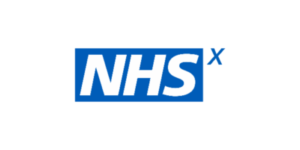Case study: NHSX
State of Open: The UK in 2021
Phase Three: “The Value of Open”

 Andrew Harding, Open Tech Lead
Andrew Harding, Open Tech Lead
Synopsis
NHSX develops open source software to help digitise services and transform how the UK health sector uses technology for seamless patient experiences. Open source allows stakeholders to share ideas, solve problems, compare solutions, iterate and amend, while decreasing the burden of development. They are aiming to create a shared culture, shared standards, through which they will achieve a system that is more effective for patients. Although there is a long way to go, the healthcare sector is motivated to make things more open, accessible and shareable and they are definitely on the right track.
9.2 NHSX
Building confdence in open source solutions
In conversation with Andrew Harding, Open Tech Lead
Founded in 2019, NHSX, a joint unit of NHS England and the Department of Health and Social Care, supports efforts to digitise services and transform how the UK health sector leverages technology for seamless patient experiences. Developing open source software and code to help do this, NHSX leads digital transformation through products, policy and standards.
Value alignment: Open source and NHSX
Andrew Harding, Open Tech Lead, believes open source software is “where we want to be”, allowing stakeholders to share ideas, solve problems, compare solutions, iterate and amend, while decreasing the burden of development and “making more use of the work we do in house.” Through knowledge sharing, NHSX creates solutions that work across multiple trusts; a step towards solving the problem of interoperability and avoiding lock in.
They’ve open-sourced both Covid apps, the new ‘Admit Me’, ‘Data Lens’ and ‘Long Stayer’ tools, and more are yet to come.
With the use of open source software comes a need for creating adequate and uniform standards as well as best practices within the healthcare sector, especially when it comes to licensing and copyright. As Andrew says, “What we’re trying to get to is a shared culture, shared standards. And through those shared standards, a system that works better and more efficiently for patients.”
Since its inception two years ago, there’s been a movement within NHSX to increase open policy development and best practices for open source software.
Confidence and Trust
Andrew believes that if we want to see usage and adoption of open source increase, we need to build trust in its value and build the confidence of both users and engineers in its deployment. He sees that one way to build trust is through centralised policy: “If I can say to workers across the NHS, here are the licenses you can use, here are routes to success that other people across the system have used, here’s your best practices, our GitHub policies… if I can give them all of those tools, then they can go to their own local IT teams, their Boards, they can go to anyone who has authority over how they do business locally and say, “Look, we’ve got a mandate, we’ve got permission, we’ve got national commitments in the new Data Strategy, we’ve got specifically written policy and guidance on how to make this work.”
This goes hand in hand with enabling enthusiasm, education and the confidence to use the tools. Investing the time, energy and resources in supporting those people who can be easily encouraged to use open source software is a critical step forward.
Healthcare: a glimpse ahead
The healthcare sector has a lot of will and desire to make things more open, more accessible, more shareable and although there is a lot of distance to be covered, it is on the right path. As Andrew sums it up, “The NHS has over 120 GitHub repositories, and thousands of analysts across our institutions, many unfortunately in silos. Open ways of working enable them to collaborate, increase efficiency, reduce repetition, and ultimately lead to better outcomes for patients. It’s a clear win.”
